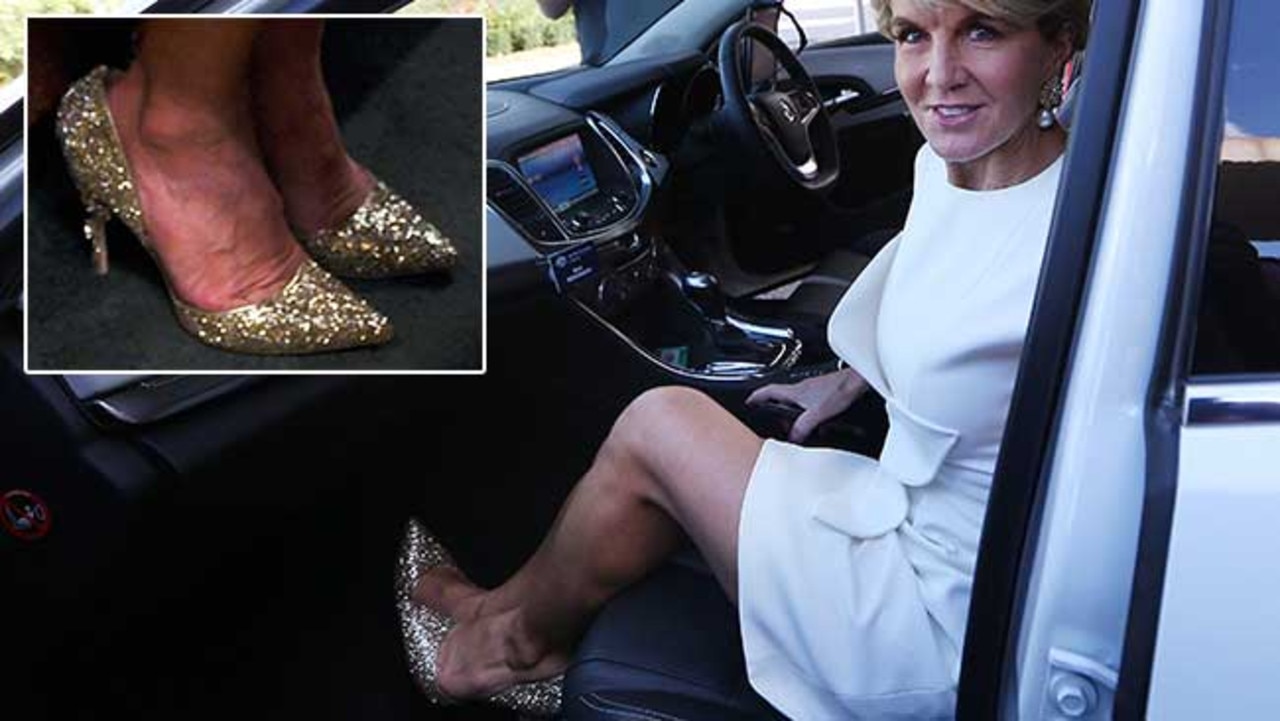Seven sex scandal not about money but a textbook case of bullying
To most women the Seven sex scandal looks like nothing other than a textbook case of shaming and bullying.

The former premier of Victoria, Jeff Kennett, has written about the Seven sex scandal in The Australian today.
It’s a muscular defence of the company, and why wouldn’t it be?
Mr Kennett is on the Seven West Media board, and he is, therefore, invested in company’s wellbeing (as am I, being a shareholder.)
The scandal, as most people know, centres on a consensual affair between Seven’s married CEO, Tim Worner, and one of the company’s younger, former executive assistants, Amber Harrison.
Mr Kennett says, in essence, that Seven has paid a lot of money to make this sordid business go away, and yet it’s hasn’t, and he’s had enough.
Well, three things need to be said about that.
First, it’s surely a bit rank for Mr Kennett to pen such a piece when he knows perfectly well that Ms Harrison can’t fight back.
Seven West Media went to court this week, and slapped her with an injunction, meaning she’s gagged.
So he’s having his say, and she can’t have hers.
That’s not cool, Jeff.
Second, there are a number of allegations in the piece about Ms Harrison’s abuse of a corporate credit card.
Okay, fine, but let’s take a step back.
The culture surrounding the use of credit cards at Seven, before this all blew up, was clearly out of control.
They had people spending willy-nilly. What other conclusion can you draw, when auditors turn up figures like $240,000 on this card, and $400,000 on that one?
I could solve this problem for them, pretty much overnight.
They should hire more women executives.
I defy anyone to make the case that women executives splash company cash the way men do.
Most of the women executives I know — and I probably know the precious few there are — are immensely anxious when it comes to using their credit cards. They don’t even like going out to lunch, and they certainly don’t go for hours-long boozy lunches and come back to work drunk.
They’re cautious, mainly because in spite of all their talent and experience, they still feel so hopelessly, pathetically grateful to have the jobs they do.
But these are not the only problems with Mr Kennett’s piece.
The main problem comes when you break down actually happened at Seven: a senior executive engaged in an extramarital affair with a younger woman.
No laws were broken, but when the affair went bad, her credit card was suddenly audited and hundreds of thousands of dollars’ worth of dodgy expenses were supposedly found.
Ms Harrison was told that her job was at risk, but she fought back, saying this was clearly an exercise in bullying her out of the building.
The “red leather chairs” — one example — she put on her credit card were for the office. She has photographs of Mr Worner sitting in one of them, while watching TV.
And so, one by one, they went through the expenses, until the amount she was supposed to have stolen came down and down, settling, finally, at $14,000.
Seven wanted to fire her for this, but agreed to let her stay after she allegedly confessed to both the misuse of the card, and the affair with Mr Worner.
Mr Kennett writes: “She was given time off to recover and told a job would be kept open for her.”
That’s all fine, but he goes on:
“A financial settlement was also agreed. She was paid $100,000 less the $14,000 she had misappropriated, a net payment of $86,000.”
Okay, so Seven agreed to pay her $100,000 … for what?
For distress, which might be traced back to the workplace?
Or was it hush money?
Either way, they paid, and promised to keep her job open. But then — and this is where it gets very convenient for Seven — one of its accountants suddenly decided that Seven couldn’t accept the audit that had been done on her card.
He did another audit, which found she had spent a staggering $260,000 in ways that were against company policy.
Now she’d have to leave.
And this time, they offered $350,000 in compensation, including $200,000 up front, a goodly percentage of which was due to go straight to her lawyers.
Most women, when placed in this situation, would probably take the cash and slink away in shame.
The risk to their reputation — and to their ability to find another job to support themselves — would be too high to do anything else.
Ms Harrison was outraged, and while she did apparently agree to take the deal and keep her mouth shut, she’s instead taken at least some of the money and gone thermonuclear.
She’s on Twitter (or was, until they gagged her) and she’s speaking to journalists all over town.
So you can see why Seven is absolutely furious but that’s mainly because they don’t seem to understand what this story is actually about.
They keep going on about how the affair was consensual affair, and she (allegedly) misused her credit card.
But it’s not about the sex. It’s not about the money.
To most women — especially women in the workplace — this looks like a textbook case of shaming and bullying.
For all the world, it looks like Ms Harrison got shoved out of her job for having an affair with the boss, while Mr Worner kept his much-higher paid job, and all the perks that come with it, which is of course what always happens.
Mr Kennett says he’s had enough. Well, maybe, in this instance, women have, too.






To join the conversation, please log in. Don't have an account? Register
Join the conversation, you are commenting as Logout